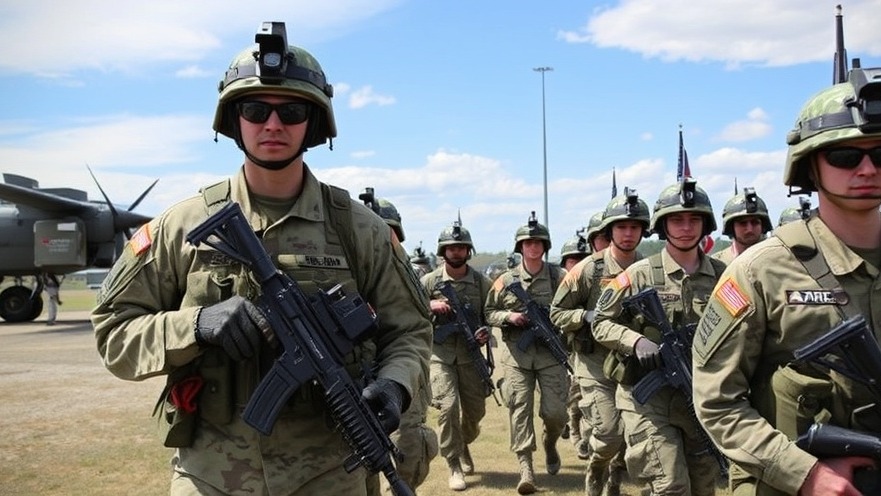
Louisiana's Rising Crime: A Call to Action
In a bold move, Louisiana Governor Jeff Landry has formally requested the activation of up to 1,000 National Guard troops to address alarmingly high violent crime rates across the state. Landry made this announcement during an appearance on the FOX News program "Hannity," highlighting the overwhelming staffing shortages local law enforcement faces amid a surge in homicides, carjackings, and gang violence.
The Context of Crime in Louisiana
Current data sheds light on the severity of the situation; Louisiana consistently ranks among the most dangerous states in America. In 2024, for every 100,000 people, there were approximately 520 violent crimes and an even higher rate of property crimes. Notably, Louisiana's violent crime rate is about 44.8% higher than the national average, indicating a substantial public safety crisis.
Governor Landry's request comes on the heels of a disturbing trend observed in key urban centers, particularly Shreveport, Baton Rouge, and New Orleans, where the convergence of increased crime rates and critical shortages in police personnel has led to a desperate situation.
National Guard's Role in Crime Prevention
Under Title 32 authority, the deployment of the National Guard is anticipated to provide significant support. The troops are expected to patrol high-crime areas, bolster the police presence where it is most needed, and secure critical infrastructure. This approach echoes past successes, such as the reported 50% drop in crime during Mardi Gras celebrations earlier this year when similar deployments proved effective.
Governor Landry emphasized on air, "This mission is about saving lives and protecting families. To the criminals terrorizing our communities: your time is up. Law and order are back in Louisiana." This statement underscores the administration's determination to reclaim public spaces from escalating violence.
Local Officials Respond to the Request
Despite the urgency of the governor's request, not all local officials are on board. Some city leaders in Shreveport and New Orleans have expressed concerns regarding the necessity of such military involvement and the implications it carries for law enforcement. The differing opinions highlight a broader debate over the militarization of police efforts and the potential consequences for community relations.
Future Implications and Community Concerns
As the request now awaits approval from the Secretary of War, Pete Hegseth, the future of law enforcement in Louisiana hangs in the balance. If granted, this could lead to a significant shift in how public safety is approached in the state. Additionally, it raises pertinent questions about civilian perspectives on safety versus sovereignty, and whether an increased military presence is the solution to systemic crime challenges.
A Broader Perspective
This situation in Louisiana reflects a national trend where local governments and states, faced with overwhelming crime rates, are increasingly turning to federal resources and the National Guard. Governor Landry's actions might serve as a precedent for other states grappling with similar crises. The complexities of managing public safety in an era of rising violence necessitate conversations that balance community trust, local law enforcement efficiency, and the broader implications of military aid.
As Louisiana navigates this pressing issue, residents are encouraged to stay informed about developments regarding public safety measures and potential changes that could affect their communities. The conversation surrounding crime prevention and community safety is vital for ensuring that solutions not only address immediate concerns but also foster long-term security.
For those interested in community safety initiatives, local forums and discussions are vital. Engaging with local law enforcement and representatives can provide insights on how citizens can contribute to public safety efforts.
 Add Element
Add Element  Add Row
Add Row 



Write A Comment